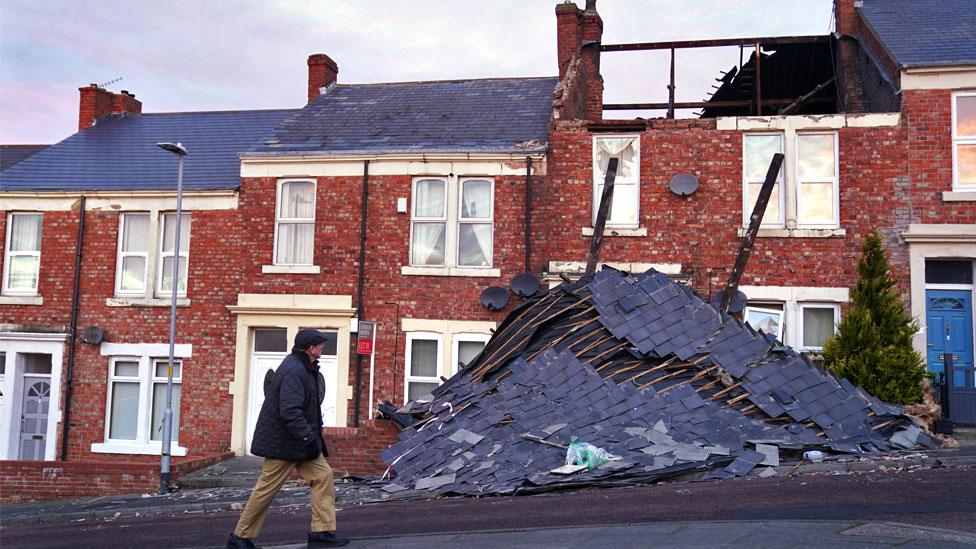Snow and ice warning in place across Scotland
- Published
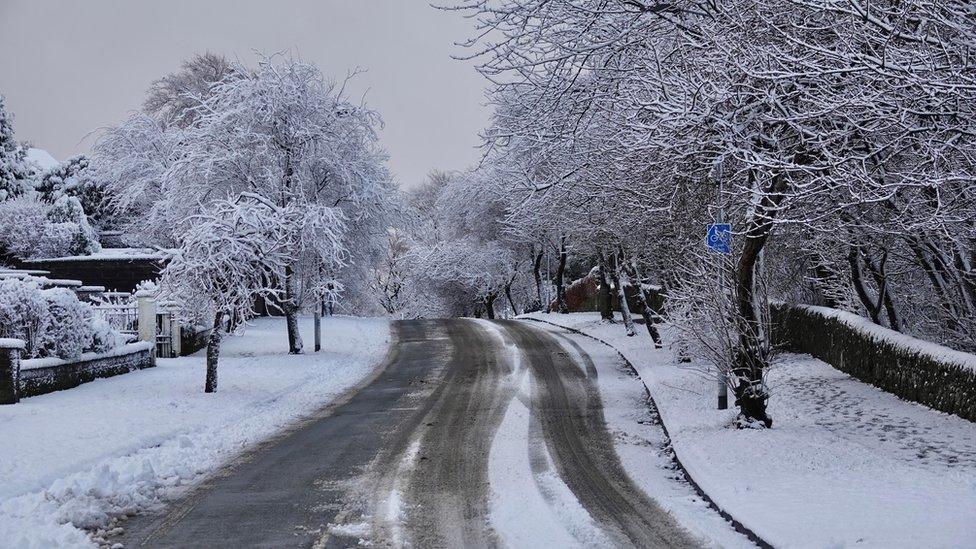
Cambus Booler captured this snowy scene in Alloa, Clackmannanshire
Drivers across Scotland are facing hazardous conditions as much of the country has been blanketed by snow.
The Met Office has a yellow weather warning for snow and ice in place until 09:30 on Friday, affecting most of mainland Scotland.
Some schools in Moray and Stirling were closed due to heavy snow overnight.
Police Scotland has urged people to take extra caution on the roads across the country.
Forecasters said frequent heavy snow showers were expected, along with very gusty winds and a chance of frequent lightning affecting some places.
A further yellow weather warning for snow and lightning for north western and central areas is in place until 20:00 on Thursday.
That warning covers Central Scotland, Tayside and Fife, the Highlands and Western Isles, South West Scotland, Lothian and Borders, Strathclyde and Northern Ireland.
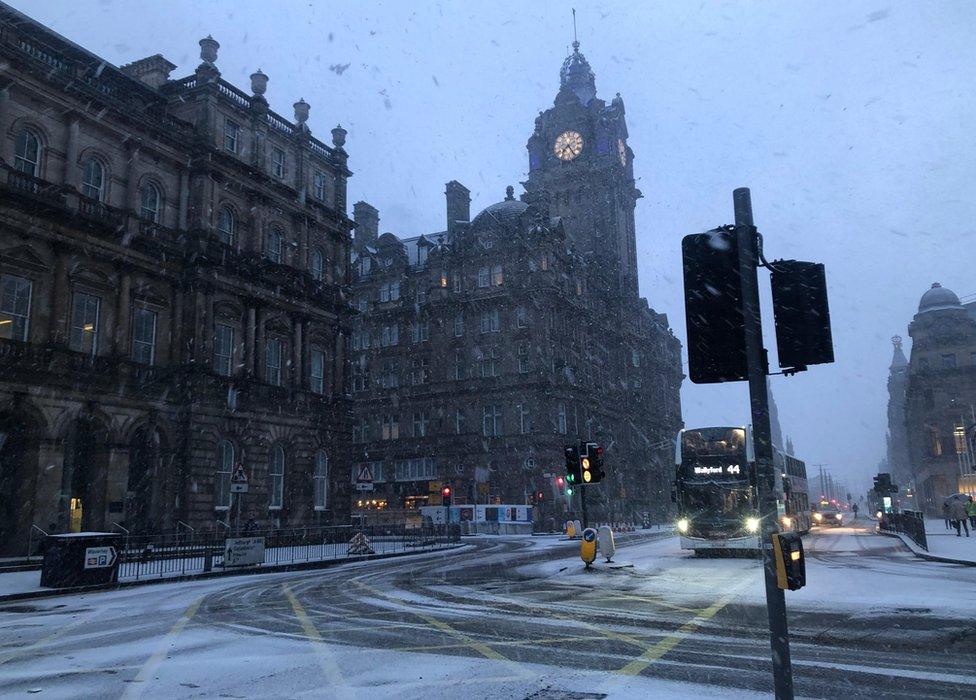
Weather Watcher Elinor Harp took this shot in Edinburgh city centre
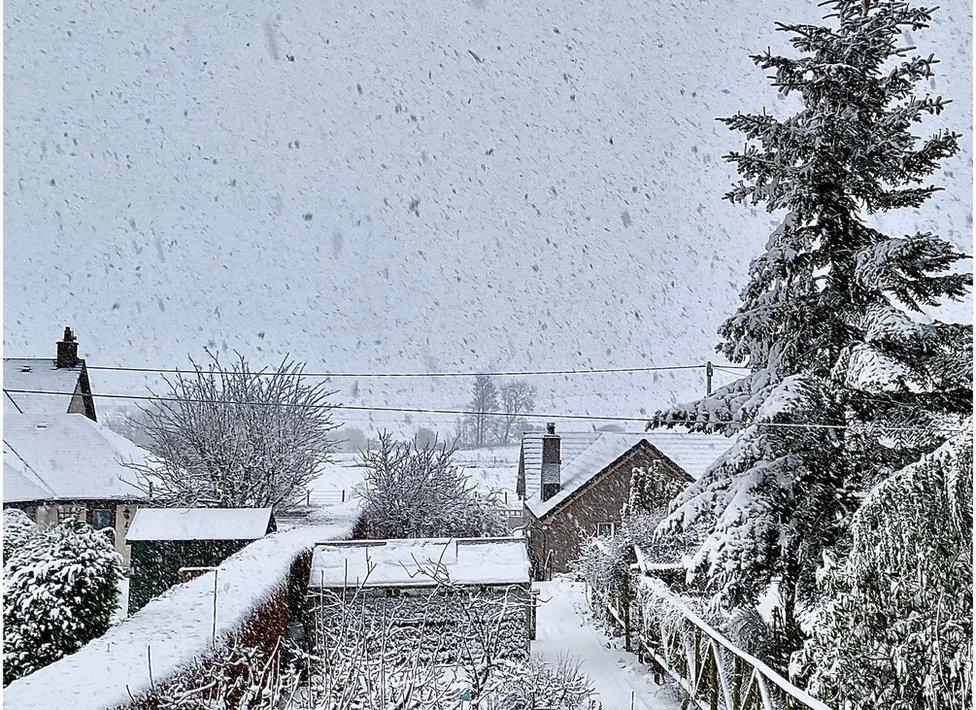
Woodside in Perth and Kinross captured by Weather Watcher Lara
About 3-7cm of snow was expected at low levels in some areas, with up to 20cm on higher ground.
A total of 29 high schools, primaries and nurseries in the Highlands and 10 schools in Perth and Kinross have been closed.
Moray Council said Tomintoul school and nursery and Knockando Primary School would be closed and Angus Council confirmed closures of Auchterhouse and Birkhill primary schools.
Pupils at Balfron High and Dunblane High schools in Stirling were told to learn remotely while Crianlarich Primary was also closed.
Several schools in South Lanarkshire delayed opening until 10:00.
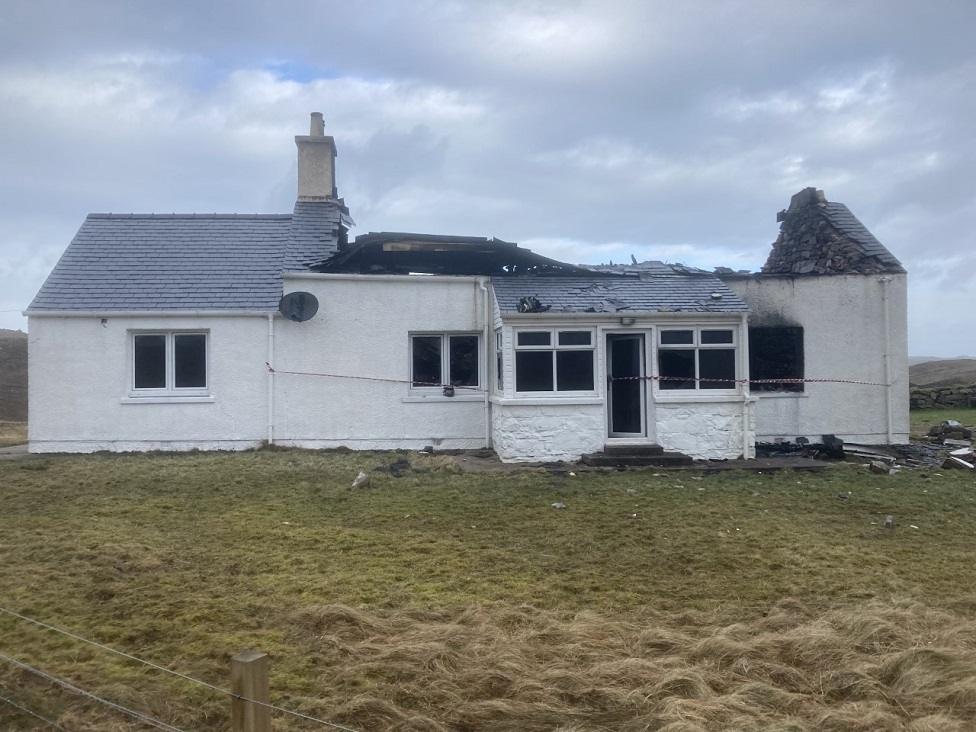
A house on the Isle of Lewis caught fire after being struck by lightning on Wednesday
Meanwhile, a house in Ardroil, Uig on the Isle of Lewis, was struck by lightning and caught fire during the adverse weather.
Firefighters tackled the blaze at about 01:50 on Wednesday - no-one was injured.
The Met Office said there was a small chance that snow showers could be accompanied by frequent lightning, which could impact power supplies.
This could affect some places outside of the yellow warning area.
Allow X content?
This article contains content provided by X. We ask for your permission before anything is loaded, as they may be using cookies and other technologies. You may want to read X’s cookie policy, external and privacy policy, external before accepting. To view this content choose ‘accept and continue’.
On the roads, Traffic Scotland said snowy conditions affected much of the central belt, the A9 around Slochd and the A90 around Dundee, and urged people to drive according to the conditions.
Delays caused by accidents and breakdowns were affecting the late afternoon rush hour in the central belt, where the snow had already melted away.
Bear Scotland, which maintains trunk roads in the north east, reported heavy snow on roads including the A9, M90, A92, A90, A95 and A96.
It said gritters had been out continuously since Wednesday night through challenging conditions.
They continued gritting roads across the whole of Scotland through out the day, with "double treatments" on many routes.
Two tractors, for the A9 Drumochter and the A82 at Glencoe, would be added to the 29 frontline gritters and 12 patrol gritters in north-west Scotland and the south of Scotland's full fleet would be out overnight.
Police Scotland tweeted: "Warnings are in place for much of the day. Please be prepared and drive according to the conditions if you are travelling."
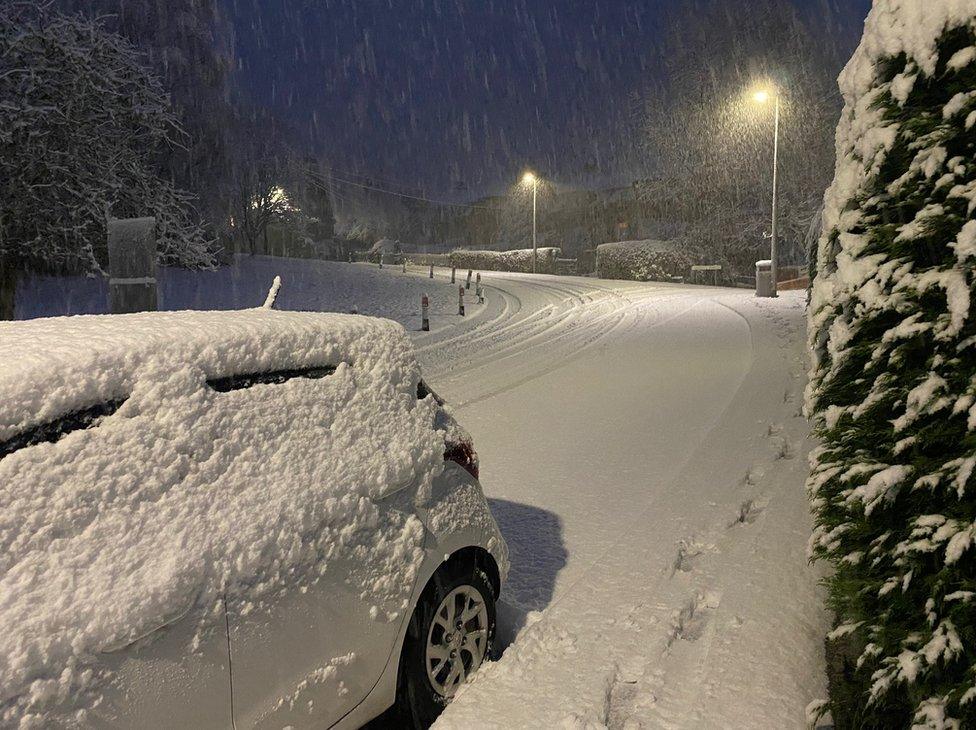
Thick snow lay on the roads in Aberfoyle overnight
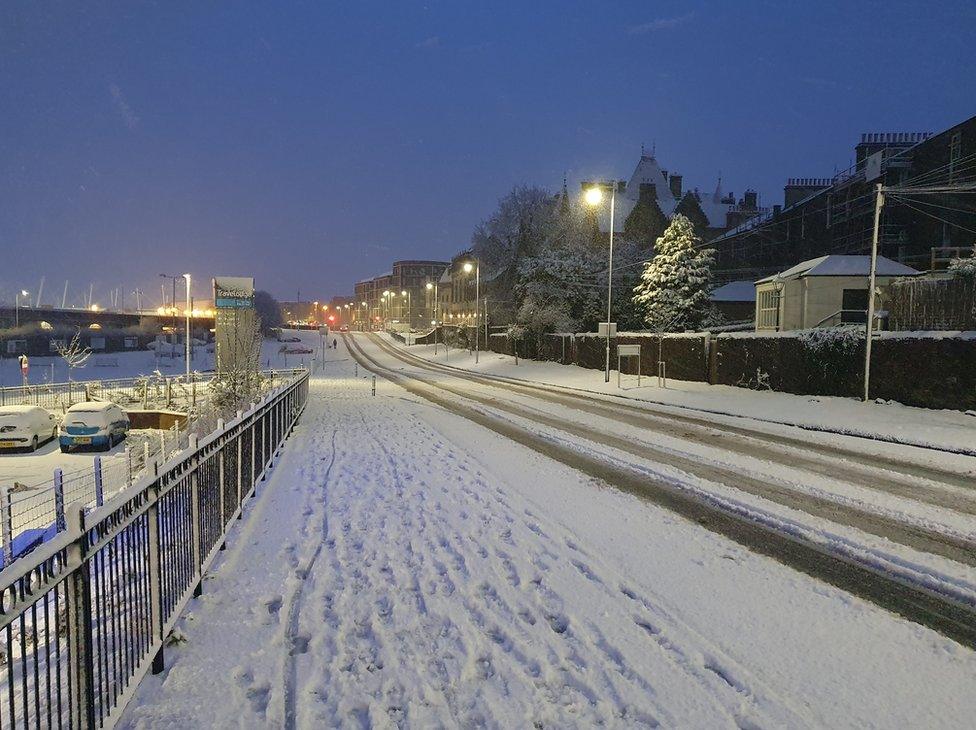
Gritters had yet to tackle this route in Stirling in the early hours
Rail and ferry disruption
A number of rail and ferry services have also been impacted by heavy snow.
ScotRail said some services from Glasgow, Edinburgh, Dundee, Aberdeen, Inverness and Perth were affected by a broken-down train between Stirling and Bridge of Allan.
Ferry operator CalMac said some services were liable to disruption or cancellation at short notice.
Public transport was significantly hit last week during storms Dudley and Eunice with blanket cancellations across the rail network.
At the time, more than 150 schools and nurseries across Scotland were closed due to snow, including almost 100 in Aberdeenshire.
Millions of people in the south of England and Wales were told to stay at home as Storm Eunice was expected to be one of the worst storms in decades.
Three people were killed in London, Hampshire and Merseyside as fierce winds toppled trees and sent debris flying. Five others were killed in Europe.
It followed storms Malik and Corrie in January, which left 118,000 homes in Scotland and 80,000 in England without power.
And in November, whole communities were left without power for days during Storm Arwen while travellers from Elgin to Aberdeen were stuck on board a train for 17 hours.
Related topics
- Published19 February 2022
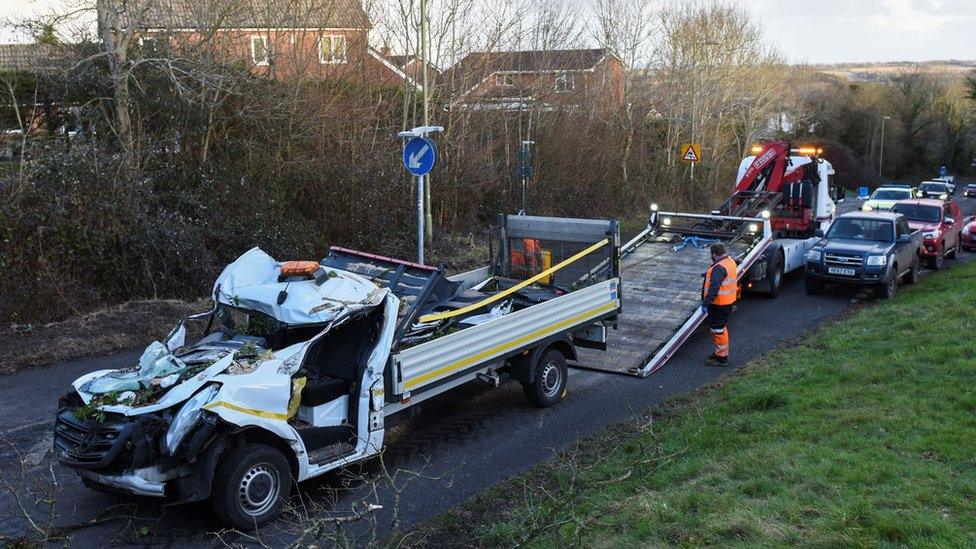
- Published18 February 2022
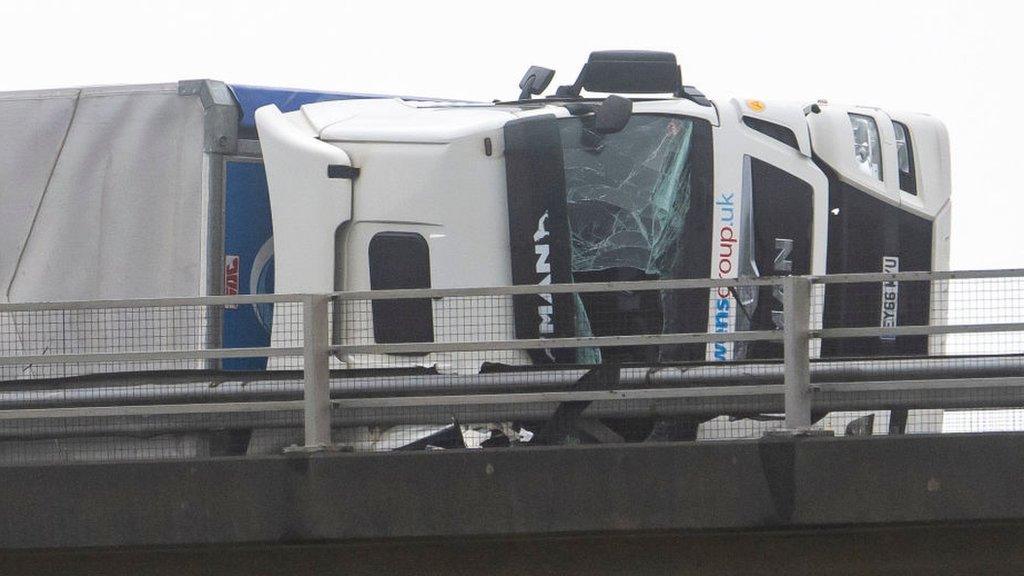
- Published31 January 2022
